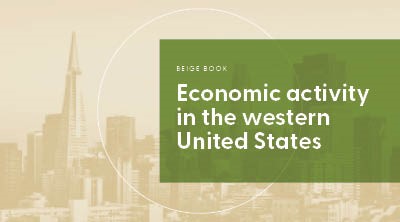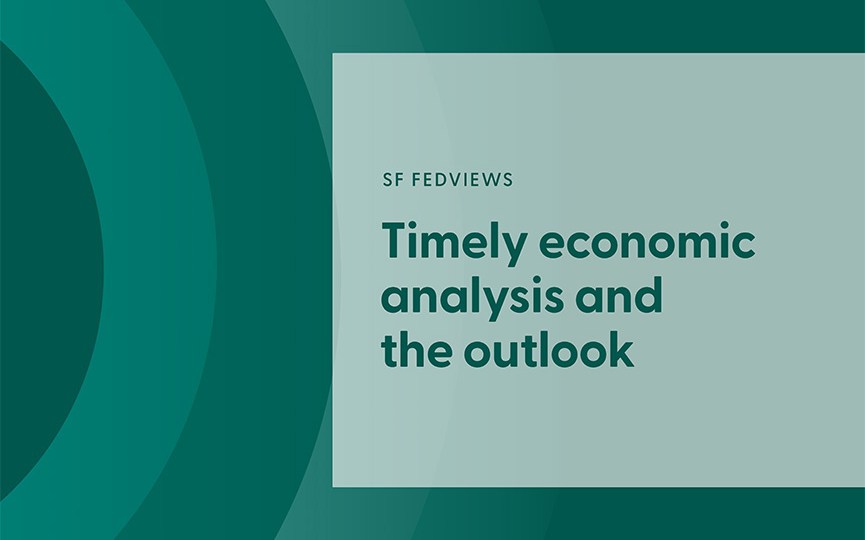We produce a wide range of publications that share the latest data, analysis, and insights from various teams at the SF Fed. Our publications help inform and strengthen public understanding of economic issues and its impact on people and communities.

Economic Research Publications
FRBSF Economic Letter >
Economic analysis for general audiences
-

The AI Moment? Possibilities, Productivity, and Policy
AI adoption and use are still evolving, and the technology itself is changing rapidly. What we know about AI and its impact on productivity growth and the economy remains uncertain. Transformations take time. We need to look for early indicators in the data and in business to get monetary policy right. The following is adapted from remarks by the president of the Federal Reserve Bank of San Francisco to the Silicon Valley Leadership Group and San Jose State University in San Jose, California, on February 17.
SF FedViews >
Analysis of current economic developments and the outlook
-

SF FedViews: Prospects for AI-related Activity Add to Uncertainty Around the Economic Outlook in 2026
Mark M. Spiegel, senior policy adviser at the Federal Reserve Bank of San Francisco, shared views on the current economy and the outlook from the Economic Research Department as of February 26, 2026.
Working Papers >
The latest in economic research
-

ChatMacro: Evaluating Inflation Forecasts of Generative AI*
Recent research suggests that generic large language models (LLMs) can match the accuracy of traditional methods when forecasting macroeconomic variables in pseudo out-of-sample settings generated via prompts. This paper assesses the out-of-sample forecasting accuracy of LLMs by eliciting real-time forecasts of U.S. inflation from ChatGPT. We find that out-of-sample predictions are largely inaccurate and stale, […]
Community Engagement and Analysis Publications
Community Development Research Briefs >
Research briefs feature data and commentary on community development trends and issues.
-
On-the-Job Exposure to AI Among Lower-Income Workers
To better understand the potential impacts of AI on the economy, this analysis assesses workers likely to be exposed to AI on the job, paying particular attention to workers in lower-income households, what occupations and industries they work in, and how exposure varies across different parts of the country.
Community Development Working Papers >
Working papers provide in-depth analysis of emerging community development issues from practitioners and scholars.
-
Housing Market Interventions and Residential Mobility in the San Francisco Bay Area
Limited evaluation research exists on which housing solutions are most effective in stabilizing communities so that those who wish to stay are able to do so in the midst of an influx of newcomers. This study seeks to fill this gap by assessing patterns of individual and household mobility related to specific housing interventions in the nine-county San Francisco Bay Area. Specifically, this study examines impacts of market-rate and subsidized development, and tenant protections, including rent stabilization and just cause for evictions protections.


